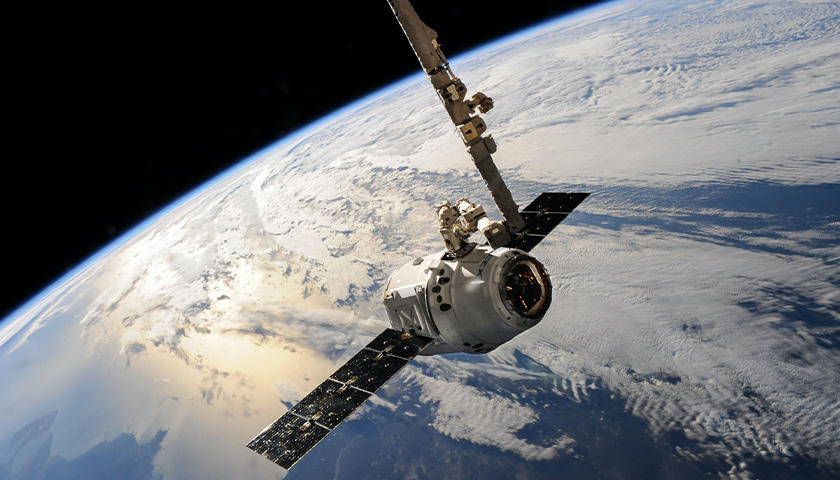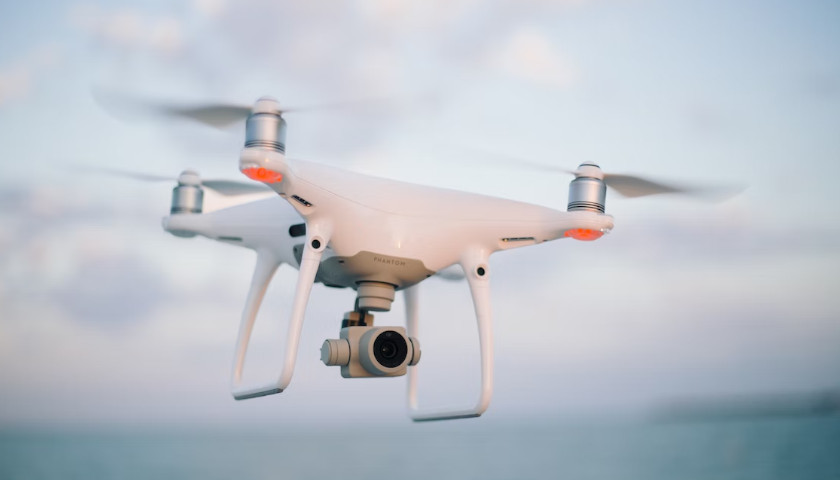by Brandon J. Weichert
Two troubling news stories have appeared in recent weeks. Neither story has received the attention it deserves.
Item 1: A covert Chinese unmanned mini-space shuttle that was launched into orbit on August 4 “ejected something” at the end of October, according to a report published on Halloween. According to Jonathan McDowell of the Harvard-Smithsonian Center for Astrophysics, the unknown object “may be a service module, possibly indicating an upcoming deorbit burn.”
Or maybe not. Given what’s going on globally, the U.S. military should be concerned that whatever object the Chinese spaceplane put into orbit is more than just a “small satellite for monitoring the space plane” as it returns to Earth. Perhaps, rather than being an observation satellite, the smaller object is a co-orbital satellite designed to tailgate U.S. satellites and latch onto sensitive American systems to sabotage or destroy them.
The news comes after the Chinese military announced it was exploring methods to disable American satellites—specifically SpaceX’s Starlink satellite constellation—by detonating nuclear weapons in orbit.
Since China successfully tested its first antisatellite weapon in 2007, Beijing’s military doctrine has been predicated upon denying America and its allies access to the strategic high ground of space in the event of a geopolitical crisis, such as an invasion of Taiwan. Counterspace warfare is a key plank in China’s greater strategy for defeating the U.S. military in combat without having to face the full wrath of America’s military juggernaut.
By denying the U.S. and our allies access to essential satellite capabilities, China hopes to render the American war machine ineffective.
Using its spaceplane potentially to seed critical orbits around Earth with co-orbital satellites that can physically push American satellites from their orbits or latch on and tap into their classified information streams, China could wreak untold havoc by disrupting land, air, sea, and cyber operations on Earth.
What’s more, as Washington continues its pressure campaign against the embattled Russian Federation over Moscow’s illegal invasion of Ukraine, Beijing and Moscow have moved closer together strategically. In the area of space, the two Eurasian autocracies are increasingly simpatico. They share the common goal of shoving America aside.
Item 2: Russian military officials announced plans to target “quasi-civilian” U.S. satellite constellations. “We are talking about the involvement of components of civilian space infrastructure, including commercial, by the United States and its allies in armed conflicts,” Konstantin Vorontsov, a deputy director in the Russian Foreign Ministry, told a United Nations panel on October 26.
Unlike Russia and China, the United States maintains a separation between military and civilian satellite constellations. The fact that the Russians are unwilling to make the distinction indicates just how irresponsible they are—and how immoral their war in Ukraine really is.
Nevertheless, Russia’s recent actions against U.S. space assets and their threats against vital satellite constellations point to how America’s foes have figured out how to exploit a key weakness in our defensive network. Short of engaging in a nuclear-first strike, neither the Russian nor Chinese militaries are well-matched against the U.S. military. But by removing America’s essential satellite linkages, both Beijing and Moscow can conceivably render the Americans deaf, dumb, and blind in Eastern Europe and in the Western Pacific.
That is why the first shots of Russia’s invasion of Ukraine were fired in space in November last year. It is why Russia, on the eve of its invasion of Ukraine, disrupted essential satellite communications services provided by the British telecom giant Viasat. And the need to deprive the West and its Ukrainian allies of reliable access to satellites led to Russia threatening to attack SpaceX’s Starlink satellite constellation, access to which Elon Musk has offered Ukraine free of charge during the current conflict—access that has given Ukrainian forces a considerable edge in combat they might otherwise have lacked. In some cases, Ukrainian forces have converted their Starlink connections into reliable GPS devices, helping them navigate efficiently against Russian invaders.
Space truly is the final frontier, and not only in terms of scientific exploration. If America loses a war in space (a strong possibility), we would lose the war on Earth. Our ability to communicate, coordinate, and surveil are all inextricably bound up with our satellites. Yet, they are woefully under-defended. Russia and China have developed methods for destroying these orbital systems, leaving America on its knees.
Former President Donald Trump established the United States Space Force to combat our enemies in space. Sadly, Joe Biden has proven himself unwilling and unable to advance the Space Force’s important mission of securing the ultimate strategic high ground. As a result, the United States is ripe for a crippling Pearl Harbor-like attack in space.
And that space-based surprise attack may lead to America’s first true defeat in war—and with it, the establishment of an entirely new world order, all because we failed to protect our assets in space. America’s enemies in China and Russia have made clear their intention to debilitate us on Earth by destroying our satellites in space.
It would be nice if Washington policymakers took America’s foes at their word—before it’s too late.
– – –
Brandon J. Weichert is a geopolitical analyst who manages The Weichert Report. He is a contributing editor at American Greatness and a contributor at Asia Times . He is the author of Winning Space: How America Remains a Superpower (Republic Book Publishers). His second book, The Shadow War: Iran’s Quest for Supremacy (Republic Book Publishers) is due in Fall of 2022. Weichert is an educator who travels the country speaking to military and business audiences about space, geopolitics, technology, and the future of war. He can be followed via Twitter: @WeTheBrandon.
Photo “Satellite” by SpaceX.





